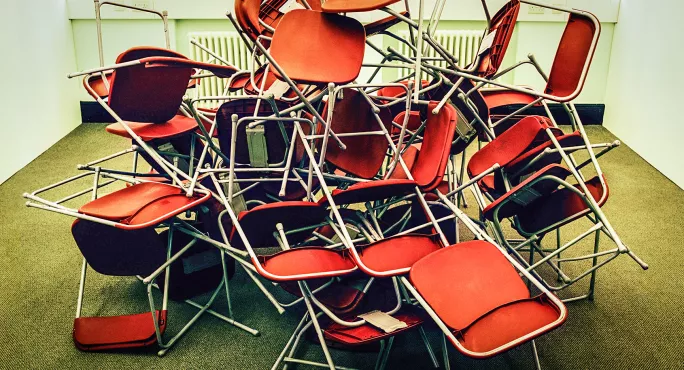Glasgow was once known as the “murder capital of Europe” - a tag it has worked hard over many years to rid itself of.
However, the head of the Scottish Violence Reduction Unit (SVRU) - which is based in the city and credited with helping turn around Glasgow’s unenviable reputation - is warning increasing poverty and under-investment in public services and youth work could fuel “an increase in violence among young people”.
Jimmy Paul - who has led the SVRU since September and was co-chair of the Independent Care Review in Scotland - said the full level of increasing violence being reported in schools has “yet to be seen in the statistics”.
‘Violence is fuelled by poverty’
It could take “some time for statistics to catch up” but - because violence is fuelled by poverty, insecurity and disinvestment in public services and youth services - ultimately, “there may well be an increase in violence among young people”.
Speaking at Children in Scotland’s Annual Conference in Edinburgh yesterday, Mr Paul also called for children to be better represented in discussions about rising violence in schools.
Mr Paul said the Behaviour in Scottish Schools Research (BISSR) published in November found behaviour in Scottish schools was worsening.
However, he said: “What’s lacking in this narrative is the voice of children.” BISSR involved teachers and other adults in education, but “didn’t speak to children”.
“It didn’t seek to understand what is happening for our kids today,” added Mr Paul. “And that’s my concern.”
He said the incorporation of the United Nations Convention on the Rights of the Child meant that it would soon be enshrined in law that children have “a right to be heard and to be heard well”.
Call for ‘trauma-informed’ approach to violence
He called for a “trauma-informed” approach to be taken to youth violence, focused on “what happened to you and not what’s wrong with you”.
Mr Paul is the first SVRU head not to come from a policing background. At the age of 34, he is also the youngest head of the SVRU.
He shared with the conference that he “grew up in the care system” and “in and around violence in harsh poverty in East London”.
He moved into the care system on his 11th birthday and said that - as he approached his final school exams - the teachers in his school were instrumental in supporting him.
They washed his clothes, provided him with hot meals and gave him extra tuition. One teacher gave him a cheque for £100 so he could buy a warm coat.
Life-changing support from teachers
However, “if people knew that teachers were doing these things for me, some of them may have been sacked” or could have got into “a lot of trouble”.
But without his teachers’ support, Mr Paul’s life “certainly could have gone a different way”; they restored his “faith in humanity”.
He urged the delegates “to keep doing what you’re doing to support children and families” and “when the rules don’t make sense, challenge those systems and rules and be brave and bold”.
For the latest Scottish education news, analysis and features delivered directly to your inbox, sign up to Tes magazine’s The Week in Scotland newsletter




